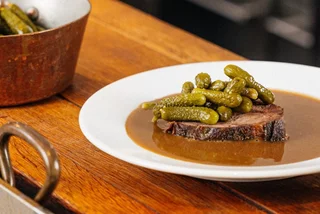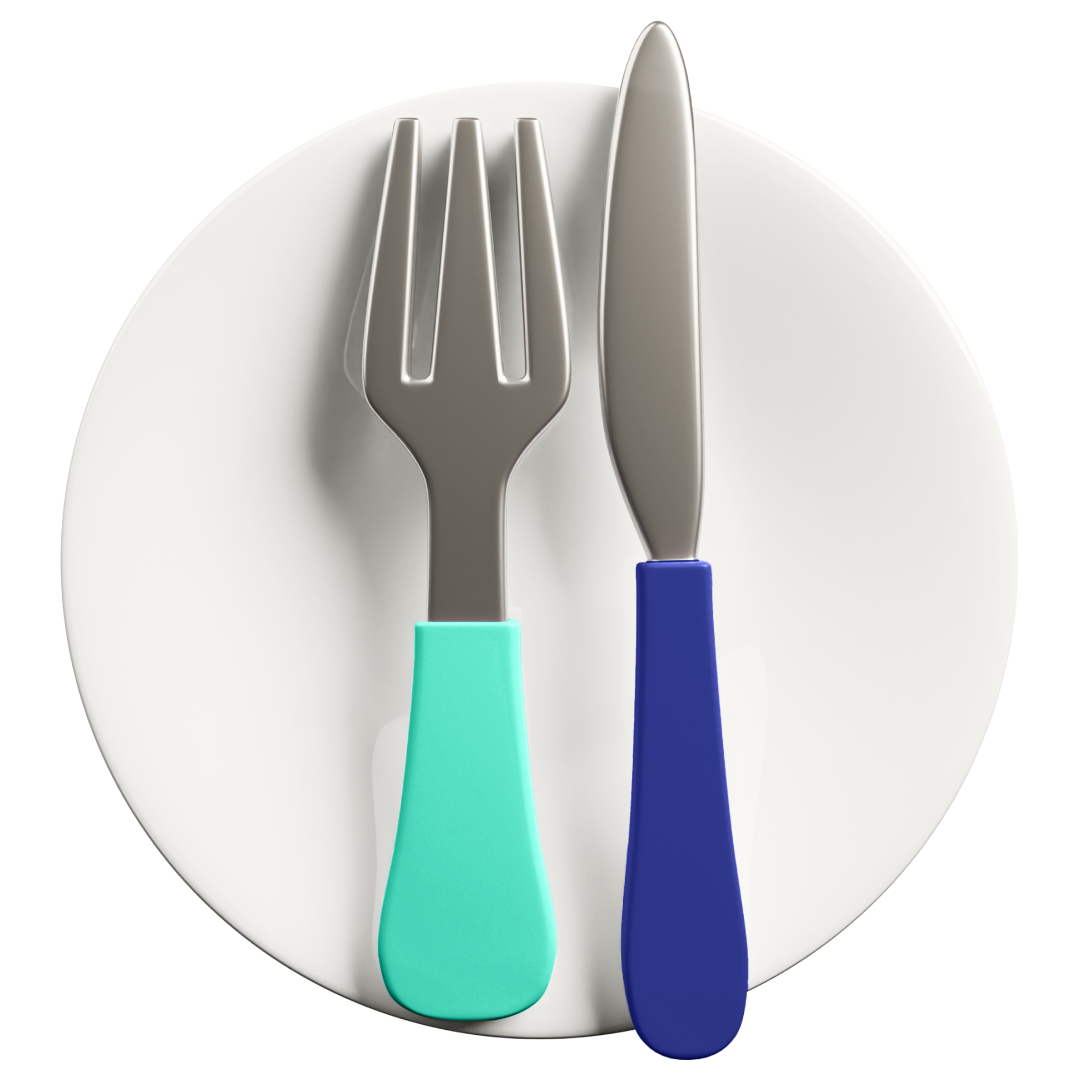Dutch schnitzel is a delicate and airy combination of ground meat and grated cheese that practically melts in your mouth. When it comes to the Dutch schnitzel made by the chefs at Prague's Lokál, this in no cliché.
We spoke to the Lokál U Jiráta executive chef Libor Baďura about the important steps home cooks must take to ensure schnitzel perfection.
Use fat as a binder

Eggs and the collagen from the meat act as binders in this recipe, not flour. This keeps the texture airy and allows the cheese to stretch beautifully when cut. For the meat, Chef Baďura says pork belly is best.
"The meat must contain fat so that the schnitzel is juicy," he explains. For the best results, he removes the skin from the pork belly and cuts it into medium-sized cubes before grinding with a medium-blade attachment.
Cheese choice matters

"At Lokál we use an aged Eidam cheese. You can also use gouda, but in my opinion, an Eidam-style cheese works best for the fritters," says the chef. Tempted to add the cheese straight to the grinder with the meat? Stop! The cheese will become ground up into the meat and won't have the desired stretchy effect when cut. Shred cheese coarsely on a box grater and add to the ground meat mixture.
You won't find Dutch schnitzel in the Netherlands. The dish is purely of Czech origin. The only things connecting it to the Netherlands are Eidam and Gouda, which are where the cheeses come from that are (not only in Lokál restaurants) grated into the ground pork shoulder. We were unable to precisely determine when and how the Dutch cutlet became a Czech specialty, so if a Dutch person asked you about it, just say "cheese."
Add diced greens for color

Add finely chopped chives (or scallions can also be used) to the meat and cheese mixture along with eggs, and milk, and mix everything thoroughly. Season with salt and pepper, though use salt sparingly as the cheese is already salty on its own. To test the mixture fry up a small test patty.
Shape into an oval, crumb, and fry

"At Lokál we shape the fritters into teardrop shapes to distinguish them from cutlets or meatballs on the plate," says Chef Baďura. While breading, heat up a pan with sunflower oil; the oil should be hot enough that the fritter sears quickly without the cheese oozing out.
"Once the fritter is nicely browned, lower the heat and finish cooking for about 5-6 minutes until golden brown," advises the chef. At Lokál, the schnitzel is served with mashed potatoes and dill pickles.
Recipe Dutch schnitzel by Lokál
Serves 4
Ingredients
400 g pork shoulder (or minced meat, ideally a mix of beef and pork)
270 g cheese (like Eidam)
1.5 eggs
12 g chopped parsley
50-100 ml milk (to moisten)
Salt and pepper
For the breading
All-purpose flour
Eggs
Breadcrumbs

Method
- 1.Remove the skin from pork shoulder and cut into cubes.
- 2.Grate the meat coarsely by hand.
- 3.Grate the cheese coarsely on a box grater and add to the meat.
- 4.Add eggs, parsley and milk to the mixture. Season with salt and pepper.
- 5.Mix everything together thoroughly and shape into teardrop patties.
- 6.Bread the patties in the flour, egg, breadcrumb mixture and fry in vegetable oil until golden brown.
In the Czech Kitchen is a weekly column written in cooperation with the culinary experts from Ambiente. Established in 1995, the Prague-based collective of pubs, restaurants, and fine-dining outlets has transformed the Czech culinary landscape and lent to the widespread awareness of quality food service and production in Czechia. Follow their socials or book your table at www.ambi.cz.












 Reading time: 3 minutes
Reading time: 3 minutes 


















